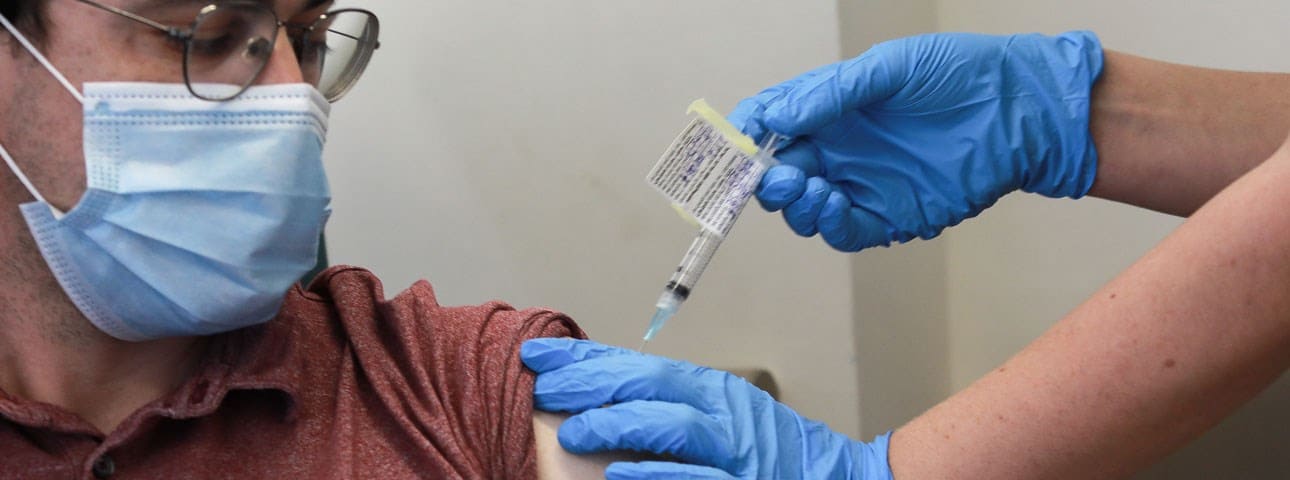Incentivizing Compliance is a Great Approach but Must be used with Care
Incentivizing compliance could have a negative impact on those who view being tested for the coronavirus as an act of civic responsibility

What if taking a coronavirus test would reward you with a daily lottery ticket, giving you a chance of winning 10,000 shekels? The idea was proposed several weeks ago and reportedly under consideration by the Finance Ministry. Even if at first glance, this idea is appealing, it’s important to understand why it’s not as attractive as it might seem.
There is widespread agreement that given the current crisis of trust in the government, providing incentives for those who comply with the rules is in many ways preferable than imposing sanctions against those who violate them. This is especially true with regard to medically related behaviors such as COVID tests or vaccinations where forcing people or imposing penalties create ethical problems for democratic states. Still, it is hard not to question this somewhat strange idea of using lotteries. Yes, this is certainly an example of innovative thinking by the authorities, but did they take into account the potential negative impact of the public’s willingness to cooperate with such a government policy? Alas, it seems that once again, the authorities are shooting from the hip, without any systematic thinking or a basic understanding of behavioral economics and psychology.
Overall, many studies have revealed that under certain conditions, external factors — such as fines or positive incentives — can, in the long run, actually curtail the public’s intrinsic motivation to cooperate voluntarily. Other studies suggest that providing incentives to encourage activities that are beneficial to society, such as blood donations, may not only curtail the public’s cooperation, but even bring people to behave in a way that undermines the public interest — for instance, by concealing a problematic medical history (to pursue our example, in order to be eligible for a reward for donating blood) — thereby defeating the whole idea behind voluntary blood banks. Another direction emerging from the research, this one — more philosophical in nature — raises an additional concern. Offering financial incentives for actions that should be value-based, may lead to the commercialization of ethical and social relations. This could in turn downgrade the social significance and erode social capital and trust. If people feel they live in a society in which they must be paid to behave responsibly, this could undermine the belief that others would care for them for social or moral reasons.
Before the government makes a final decision about this idea and prints the lottery tickets, it should consider several important principles and all aspects of the issue.
First, it must identify the target population that need to be tested and take into account the differential impact of lotteries on different groups in the population. That is, it must identify empirically who will go to be tested only because of the prospect of a monetary reward, and would not do so otherwise. At the same time, it must consider the lottery’s negative impact on those who view being tested for the coronavirus as an act of civic responsibility. In an ideal world, we would be able to rely on empirical research to indicate which of these effects is greater, and the decision would be based on these data. But clearly, given the time constraints under which the government is working, conducting such research might be challenging.
Second, the desired medical procedure (i.e., vaccination) must be defined, and how it will be viewed by the public, when done for money, rather than out of an inner conviction or prosocial position. Here, unlike the blood donation example, where the concern is that sick people will give blood — motivated by the financial reward — a coronavirus vaccination is not affected by the individual’s motivation for taking it, since the individual’s state of health does not influence the quality of the procedure, as is the case in the context of blood donation.
Finally, it is important to consider the longer-term implications and examine whether the organization providing the lottery prizes will be able to continue to do so throughout the duration of the crisis; if it cannot, when the “special offer” expires and there is no longer the prospect of a fat check for taking the test, it is highly likely that we will see a drastic drop in people’s willingness to be tested.
A possible solution that combines a financial incentive or the chance to win a financial reward, with an individual’s sense of civic and social responsibility, might be to provide incentives to small groups, such as the tenants of an apartment building or employees in a workplace in which a confirmed COVID-19 patient was identified, making it essential for all those in that building or workplace to be tested for the collective incentives to be paid to the group, building or the workplace. Such an approach of collective or communal incentives could also be done in schools or even neighborhoods in which the government wants to encourage testing at this stage and vaccinations when the dilemma will become real in a few months’ time. Such a collective incentive approach would stimulate a social norm that would motivate more and more people who must be tested for epidemiological reasons, to step up to the plate and take the test, while still maintaining a sense of solidarity, as people engage in pro-social for the benefit of their workplace, apartment building or school. Using such an approach could enhance the trust needed for voluntary cooperation and social solidarity to flourish.
The article was published in Times of Israel.
